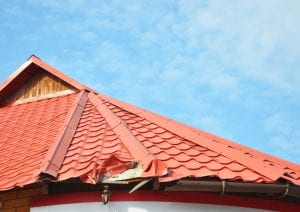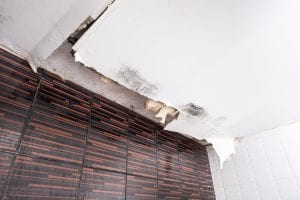Why it’s important
Talent, planning and insurance are all very important to your commercial business. However, while you are focusing on the big things, it’s vital that you not ignore the little things in the process. One such matter might be the importance of commercial property drainage.
Your commercial property is likely your company’s largest asset. It’s vital to protect it from harsh weather, accidental damage and commercial property drainage issues. Whether you are a CEO, property manager or maintenance manager, it’s likely that this responsibility falls on your shoulders. Learn how and why it’s important
The most common commercial property drainage problems
Water can be a powerful force. It has created some of the most amazing wonders on our planet, such as the Grand Canyon, Niagara Falls and the Stone Forest of China. This same power for beauty can also wreak havoc on your commercial property if its drainage is not handled properly. The most common problems include:
Clogged gutters, storm drains and downspouts
When the water cannot drain from your commercial roof, it sits there with nowhere to go. This can generate a multitude of problems, such as mold growth, mosquito and insect breeding grounds and deterioration of roofing materials. Often, the culprit is leave, dirt and debris that block the water flow. Tree roots can also be a factor. These must be regularly cleared and maintained.
Landscaping that impedes water flow
You may think that constructing a beautiful flower bed or outdoor leisure space will make your commercial property more attractive and enjoyable. This may be true, unless it interferes with the flow of water away from your building. Ultimately, anything that keeps water from flowing naturally will cause it to puddle somewhere. The cause is typically improper planning.
Grading dilemmas
It could be that it was improperly graded in the first place. You may have purchased a property and inherited a grading problem. Either way, incorrect grading can cause water to become trapped in a certain area or direct it toward your building.

Damage or disrepair of roofing materials
Factors like ineffective flashings, broken pipes and missing tiles or shingles can be the source of many drainage problems. If they are not performing effectively, it can cause water to drain into your building instead of off and away from it.
Runoff from surrounding properties
Sometimes, your commercial drainage problem may not be your fault at all, but caused by your neighbors. This can be especially problematic if your property is located downhill from other properties. Still, while not your fault, it is your problem and must be handled to prevent damage to your building and commercial property.
How do you know when your commercial property has drainage issues?
To the untrained eye, drainage problems can seem minor and insignificant. However, over time, they can lead to big headaches, such as wood rot, mold, and foundation weakening. Therefore, it’s important to know the signs and stop potential difficulties before they become worse.
Ponding water is a key indication of a problem. This can be found on your commercial roof, on sidewalks and in the parking area. During cold weather, this can freeze and cause falls, slips and risk of lawsuits. All that excess water could also damage your landscape and even kill grass and plants.
Soggy grass can also spell trouble. This may be seen in any grassy areas around your commercial property. While this might be trivial if it occurs only occasionally during a hard rain, it’s a huge issue when it happens all the time.
Erosion problems are a sure sign of drainage danger. You might notice it mainly on hills or inclines. It could also be visible from exposed roots on trees and plants. This condition poses a hazard for a landslide or risk to the structural integrity of your building.
 Water in unexpected places in your building is a clear signal of a drainage problem. For example, you may have water in your basement, leaks in your ceiling or ice buildup on the walkways.
Water in unexpected places in your building is a clear signal of a drainage problem. For example, you may have water in your basement, leaks in your ceiling or ice buildup on the walkways.
Look for cracks in the foundation that continue to widen as well. This may mean that water is seeping through, which can not only cause basement flooding, but can also weaken your foundation over time.
What to do about commercial property drainage trouble
Redirect the water flow – in some cases, commercial drainage problems are caused by topography and excess precipitation. You can add downspouts, landscape features or French drains to help route the water away from your foundation. Even something as simple as rocks or gravel may solve the problem.
Carefully monitor drainage – when it rains or snows, you should check that the water is draining properly. You may want to schedule an inspection with a top quality contractor to catch potential trouble spots. Just because you have not experienced a costly issue yet doesn’t mean you won’t. Some drainage problems occur slowly over time so it’s important to keep an eye on small issues so they don’t become expensive hassles.
Call the experts – a trained, experienced contractor can assess your commercial drainage issues and develop a unique and permanent solution for your property, but not just any solution. Our skilled and dedicated staff will use the right tools, materials and knowledge to get your commercial property in top shape. We will also help you create a customized storm management and drainage plan to prevent problems in the future. Don’t count on unqualified, unproven contractors with something this important. They will only leave you with a worse problem than you started with.
For demolition, disposal, and drainage concerns, you can trust Mikula Contracting. We can perform an onsite audit to examine your commercial property to fix your issues, conserve water and reduce your maintenance time, all to save you money and make your property more attractive. We have the talent, capability and capacity to handle even your toughest drainage matters. Drainage solutions, erosion control and water management are just some of the services we offer. We service Essex, Passaic, Hudson, Bergen, Union and Morris counties. Call today for a fast quote.